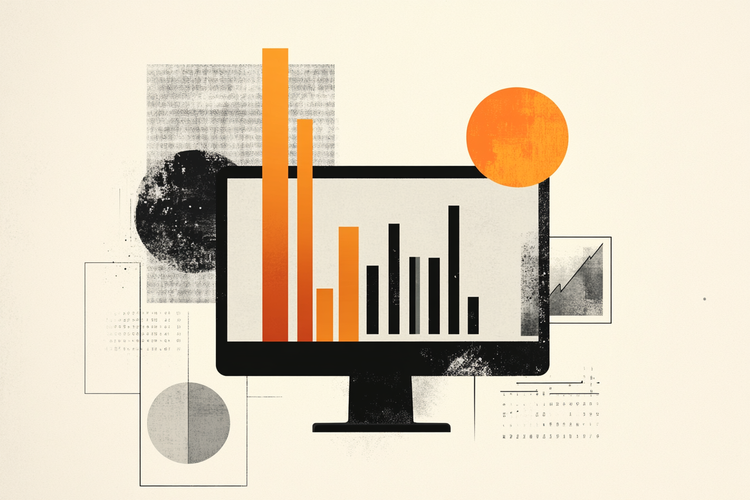The first case of Covid-19 in Brazil was laboratory confirmed exactly two years ago. On that Ash Wednesday, tests confirmed the infection of a 61-year-old man who had been treated at Hospital Israelita Albert Einstein, in São Paulo, with a history of traveling to Italy, where the number of cases was exploding.
Over these two years, government officials, managers, public health authorities and society itself added up mistakes and successes in combating the pandemic, according to experts heard by the Ministry of Health. CNN.
“Our successes were largely supported by our history and efforts to build the SUS. I would say that the biggest one was the capillarity, the installed capacity in our logistics to make the vaccine reach everyone at a speed that did not make up for lost time, because lives were lost. But we are certainly moving at a speed that has helped a lot to avoid an even worse scenario”, summarizes health researcher Chrystina Barros, member of the Committee to Combat Coronavirus at the Federal University of Rio de Janeiro (UFRJ).
Limited dose stock
Despite the extensive structure of the Unified Health System (SUS), with around 38,000 vaccination rooms distributed across states and municipalities, new immunization posts and drive-thru systems, experts point out that Brazilian expertise in mass vaccination has collided with the limited stock of doses.
Also in 2020, Fiocruz and the Butantan Institute closed a partnership to produce vaccines from AstraZeneca and Coronavac, respectively. According to Fiocruz and Butantan, the maintenance and progress in the rate of production of doses were linked to external factors, such as dependence on imports of the Active Pharmaceutical Ingredient (API), the raw material for vaccines, imported from China.
“The fact that we have a National Immunization Program with capillarity and experience for rapid vaccination and a large volume of people per day ran into the lack of vaccines”, says the director of the Brazilian Society of Immunizations (SBIm), Flávia Bravo.
Another challenge was the signing of contracts for the purchase of immunizers from vaccine-producing companies by the federal government, via the Ministry of Health.
Five months after the World Health Organization (WHO) declared the coronavirus a pandemic, the Ministry of Health announced the signing of a protocol of intent for the acquisition of 46 million doses of the vaccine by the Butantan Institute in October 2020. However, the agreement was signed in early January 2021 by the then minister Eduardo Pazuello. The agreement to purchase vaccines from Pfizer and Janssen only came out on March 19.
“We saw an upward curve in the increase in vaccination that was coming slowly, primarily with risk groups. As of August, we saw an extension of vaccination and a much greater speed, confirming what we said would happen”, comments Flávia.
Public consultation for childhood immunization
With the advancement of vaccination and the application of booster doses to the adult population, expectations for the immunization of children have increased.
In the United States, vaccination of the population aged 5 to 11 years began on November 3. In mid-December, it was the turn of European countries to start the campaign. In Brazil, vaccination began in January.
Anvisa authorized the vaccination of children aged 5 to 11 years with the pediatric version of Pfizer on December 16. However, the start of immunization depended on the planning and action of the Ministry of Health, which chose to carry out a public consultation with the population on the subject.
Shortly thereafter, on January 20, Anvisa authorized the expansion of the use of Coronavac in the population aged 6 to 17 years, except for immunosuppressed individuals.
overloaded beds
Despite the capillarity of the SUS, the UFRJ researcher Chrystina Barros believes that no country in the world was prepared for the expressive volume and demand of healthcare services, whether public or private.
“The whole world was taken to the extreme of generating service conditions for a brutal volume. Nobody was prepared or expected this volume of care and demand for health. No production chain was prepared – such as the demand itself, for example, for masks and respirators, which were disputed around the world”, says the researcher.
The infectious disease doctor Álvaro Furtado, from the Hospital das Clínicas of the University of São Paulo (USP), says that the exhaustion of ICU beds was already an obstacle in Brazil before the pandemic.
“There was already a problem of sizing ICU beds in Brazil. The pandemic increased the number of hospitalizations quickly and significantly, which made decisions to be made very quickly. The pandemic has shown that good care goes beyond opening beds, including good doctors and a sufficient number of health professionals,” said Furtado.
In addition, according to him, Covid-19 highlighted the disparities in the supply of ICU beds between different Brazilian regions.
Despite the critical scenario of bed availability, which fluctuated throughout the pandemic, Chrystina Barros emphasizes that Brazil has expertise in structuring field hospitals.
“Brazil has a tradition and experience of assisting with field hospitals in humanitarian tragedies, such as the earthquake in Haiti and other situations where we bring our knowledge and infrastructure. We were able to bring the field hospitals that were fundamental to all parts of the country,” he says.
In January 2021, Manaus, in Amazonas, went through one of the most critical situations of the pandemic in the country. Faced with the significant increase in cases caused by the rapid spread of the Gamma variant of the coronavirus, the Amazon capital faced a shortage of oxygen.
As the infection can severely affect the respiratory tract and lungs, many hospitalized patients need extra support and ventilation. With the collapse of the local healthcare system, oxygen shortages led to the death of patients in the capital.
The oxygen crisis was one of the targets of the investigation by the CPI da Pandemic, which pointed to evidence of what would have led to the shortage of the input.
Low testing and contact tracing
Since the beginning of the pandemic, in March 2020, the World Health Organization (WHO) has recommended testing as an essential health measure to face the pandemic. Combined actions range from testing to tracking potential infected.
From the timely diagnosis of the disease, adequate treatment of patients must be provided, social distancing guidelines and contact tracing promoted, which are those people who may have been exposed to the infection.
Although it is an essential strategy for monitoring the epidemiological scenario, testing is still insufficient in Brazil according to experts heard by the CNN. THE CNN contacted the Ministry of Health to respond to the criticisms pointed out by professionals in the area, but did not receive a response until the conclusion of this report.
Brazil has three reference laboratories for carrying out the diagnosis, the Oswaldo Cruz Foundation (Fiocruz), in Rio de Janeiro, the Adolfo Lutz Institute, in São Paulo and the Evandro Chagas Institute, in Pará.
Although there is an installed capacity to carry out the diagnosis, especially by the three central public health laboratories in the states, progress in testing still faces the lack of supplies and teams to process the tests in a more timely manner.
“We feel the lack of investment in primary care, here with an important role in early diagnosis and testing, for better management and containment of the pandemic, when it was still possible”, says Chrystina.
“Effective control was lacking in the surveillance of ports, airports and borders, with regard to testing, genetic mapping of samples and all the investment also necessary for better management of the pandemic”, he added.
Countries such as the United Kingdom, the United States and South Africa have a higher testing capacity than Brazil. In addition to diagnosis, performing the genomic sequencing of the virus favors the rapid detection of variants, such as Ômicron, identified in November 2021.
With regard to understanding the characteristics of the disease, infectologist Álvaro Furtado assesses that Brazil has made significant advances in understanding the epidemiology of Covid-19, especially through technical and scientific investment in public teaching and research institutions.
“We knew absolutely nothing about how to treat these patients, we have evolved very well in the last two years. Today, we understand what are the mechanisms of aggression in the lung, the clinical stages of the disease and the drugs that we have available for treatment that really have scientific evidence of efficacy”, he says.
Effects of changing ministers
Since March 2020, Brazil has had four Ministers of Health: Luiz Henrique Mandetta, Nelson Teich, Eduardo Pazuello and Marcelo Queiroga. In the evaluation of the researchers, the frequent changes in the command of the portfolio made it difficult to establish a clear and consistent line of management.
“The Ministry of Health lacked coordination from the management point of view, so that all states and federation units spoke the same language regarding vaccines, for example. There was a little lack of social communication, in the sense of talking to the population and explaining in a didactic way ways of prevention and the incentive to vaccination”, says Álvaro Furtado.
For experts, a uniform discourse in the definition of closing and reopening services could have had positive impacts, such as the lower number of cases and deaths.
“Putting the managers of all spheres to the table as foreseen by the SUS – state, municipal and federal management, so that the guidelines, the exchange of information, the management of resources, the implementation of restrictive measures, the flow of reference and patients between different areas: all this should have been led by the Ministry of Health”, says Chrystina.
(With information from Liege Albuquerque, collaboration for CNN)
Source: CNN Brasil







